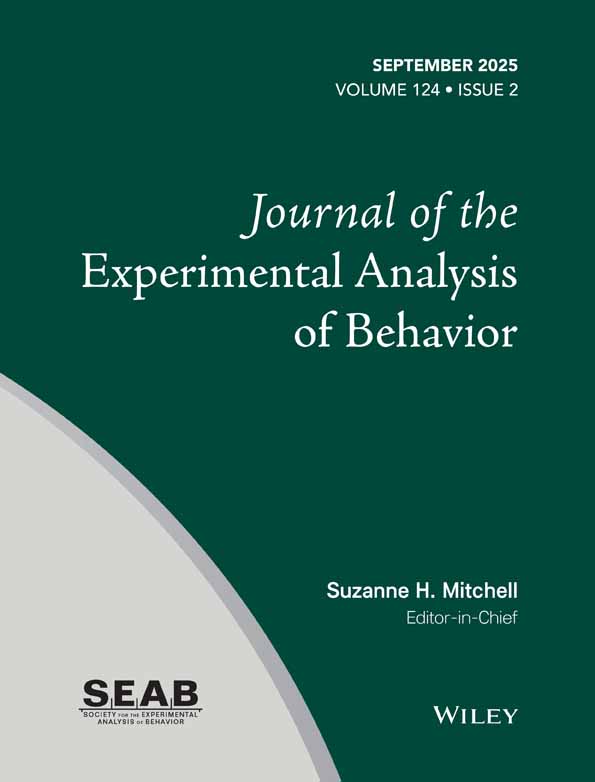SELF-IMPOSED TIMEOUTS UNDER INCREASING RESPONSE REQUIREMENTS1
Research supported by National Aeronautics and Space Agency Grants NSG 189–61 to the University of Maryland and NGR 21-001-069 to the Johns Hopkins University, and report preparation, in part, by MCHS Grant No. 917. Assistance of E. Taylor and student aides in conducting the study is acknowledged.
Abstract
Self-imposed timeouts by pigeons working under a progressive-ratio food schedule were studied under different conditions. The main findings were (1) continued production of timeouts over an extended series of sessions, (2) more frequent responding on the key with the timeout consequence than on a key having no consequence, (3) an inverse relationship between number of timeouts and level of body weight, (4) production of timeouts when the timeout duration was brief, lengthy, or controlled by the pigeon, and (5) dependence of self-imposed timeouts on variables controlling responding under the progressive-ratio schedule. Under all experimental conditions, with the exception of performances at the high body weight, timeouts were more frequent during the longer progressive-ratio steps and usually were localized in the post-reinforcement pause or the early part of the step. The timeout behavior could be interpreted as either an escape from aversive stimuli generated by the progressive-ratio schedule or as a response reinforced by the consequent stimulus change.




